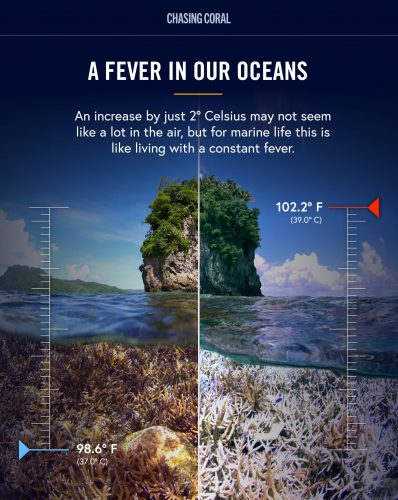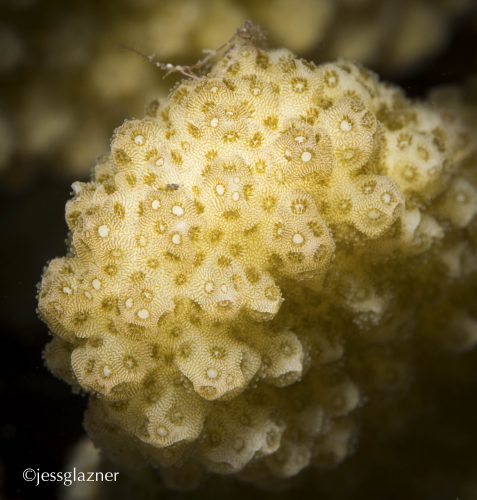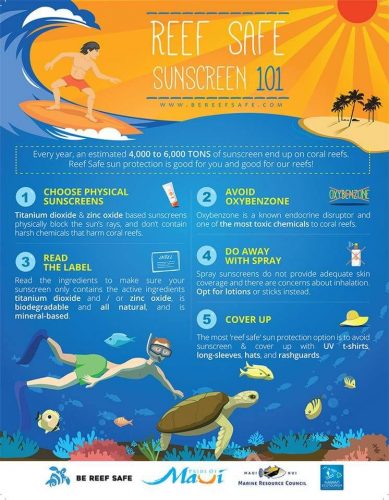By Jessica Glazner
As divers, many of you probably already know that the oceans reefs have undergone extensive coral bleaching over the last decade, but do you know what that actually means?
Well, What Are Corals Anyway?
Corals are animals in the Cnidarian family that are related to jellyfish and hydroids. Specifically, stony corals, which make up most of Hawaiiʻs reefs, are a colony of animals. Each coral head is made up of thousands of tiny individual polyps living inside of a hard outer skeleton made of calcium carbonate. Each polypʻs tissue is nearly translucent; the corals beautiful colors come from an algae that lives inside of the animals tissues. This algae, called zooxanthellae, has a mutualistic relationship with the coral, the coral provides protection for the algae, and the algae provides food and oxygen for the coral through photosynthesis.
So, What Is Coral Bleaching?
When coral bleaches (appears stark white) the animal has lost its algae and you are seeing through the polyp to the skeleton of the animal. There are several things that can cause coral to bleach, however the largest threat corals are currently facing is rising ocean temperatures.

Corals are much more likely to bleach if they are already vulnerable and stressed before temperatures rise. Familiar factors like overfishing, coastal development which leads to sedimentation, as well as human contact all put corals at higher risk for bleaching. A less familiar factor is that increased CO2 levels create a change in the ocean significant enough to prohibit corals from making strong skeletons, called ocean acidification. It can take up to a decade for corals to recover from a bleaching event, but these bleachings are becoming more and more frequent leaving little time in between for reefs to recover.
Although coral reefs cover less than 2% of the sea floor, they support 25% of the oceans animals. They are incredibly important to the oceans biodiversity, as well as coastal communities that rely on fishing, tourism, and the storm protection reefs provide to seaside areas from erosion.
What can you do?
As divers we have direct contact with these amazing animals, and it is our responsibility to ensure we are doing our best not to contribute to their harm while underwater.
First, we must be good role models and ambassadors for ocean protection. This means doing everything in our power not to come into contact with the corals. It may seem obvious, but it’s worth emphasizing because only we can take personal responsibility to protect the reefs in a concrete, physical way. The best ways to achieve this are by making sure that you are neutrally buoyant and in a horizontal body position (rather than a diagonal position with fins down on the reef).
Another way you can have a direct, positive impact on the reef is by wearing Reef Safe sunscreen (or better yet, wear protective clothing like a rash guard!). Chemical sunscreens have been proven to cause stress to corals, making them more susceptible to bleaching. Read the label of your sunscreen, the only active ingredients should be non-nano Zinc Oxide and/or Titanium Dioxide.
On a more global scale, other ways you can reduce your impact on coral reefs is by decreasing your personal carbon footprint. Choose to support businesses that are practicing sustainability, and try to education yourself and the people around you about these issues.
As divers it is our duty to help preserve these precious ecosystems that we love to visit and explore.
Do you want to learn more about Coral Reef Conservation?
Take our ONLINE Coral Reef Conservation Course!
Send an email to info@extendedhorizons.com for more information!
.

